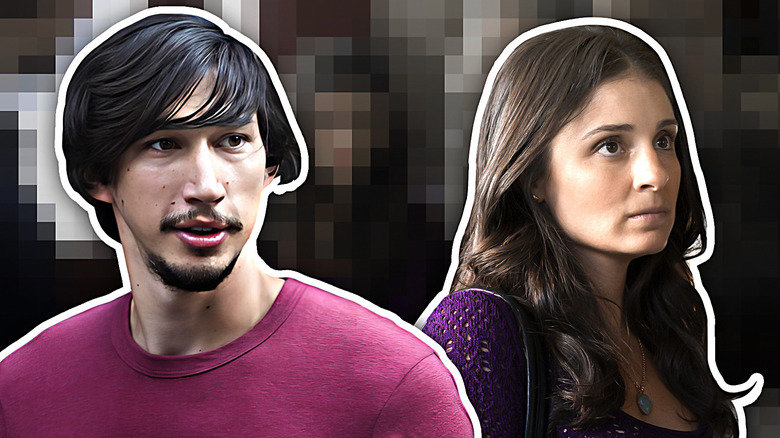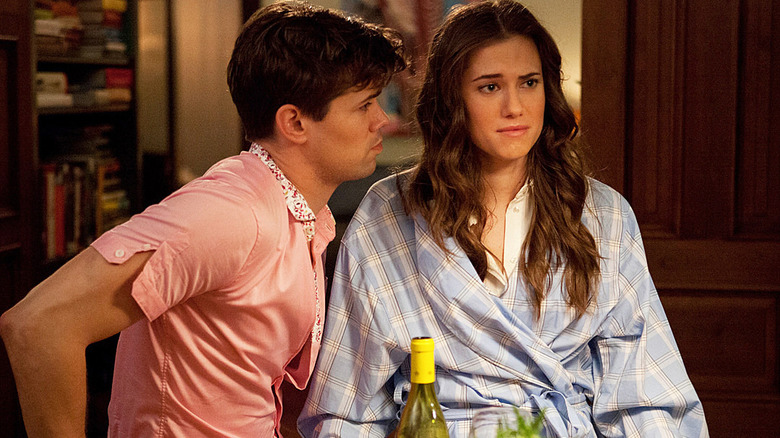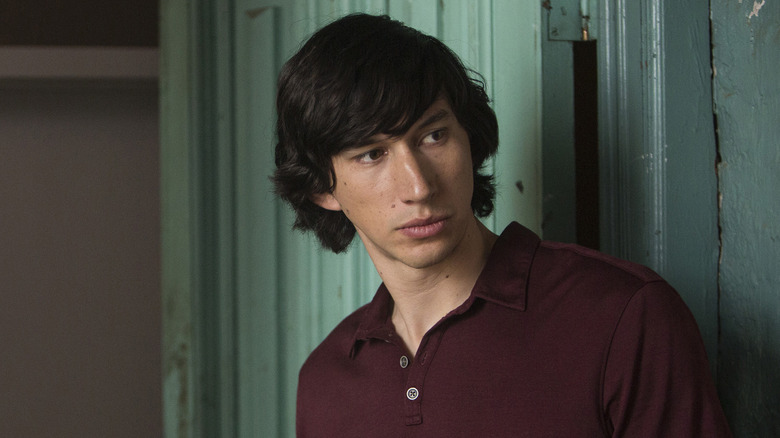HBO Had To Ban Girls' Most Explicit Sex Scene - Or Lose Their TV License
Once it premiered in 2012, the HBO series "Girls" — created and led by Lena Dunham — was a constant lightning rod for controversy, and according to an oral history of the show, sometimes the call was coming from inside the proverbial house.
In an oral history of the series in The Hollywood Reporter (which appeared in the print edition), producer Judd Apatow and showrunner (and star) Lena Dunham discussed one scene that was so sexually explicit, HBO could possibly lose its license to air television shows. "From the beginning, we were aware that what we were doing was sexually provocative, and that's what made it interesting and new and fun," Apatow told the outlet. "Lena wanted to reveal something that is normally hidden — so often you're not talking about a giant part of most people's lives because people don't want to portray it on film — and that opened up tons of stories that you're usually not able to tell." Apparently, one scene had what Apatow referred to as a "conclusion shot," and Dunham confirms that, yes, it's exactly what you're imagining. (Specifically, Dunham says "it was actually c*m arcing through a shot.")
So what exactly happened? According to Apatow and Dunham, HBO came back with a note — namely, that they didn't know if they could air this scene. "And HBO said, 'If this is in the show, we could lose our license,'" Apatow recalled. "We were like, 'Oh my God, we've actually found the line at HBO.'"
The team behind Girls ended up re-working a scene featuring two major characters
In response to Judd Apatow and Lena Dunham's revelation, Sue Naegle, who was the president of the premium network at the time, did say the top brass had a point: "In HBO's defense, it was like a fire hose!"
Apparently, sometimes the top brass at HBO did have some good input into what lines "Girls" could and could not cross. One of the show's executive producers, Jenni Konner, said that they initially pushed back against the head of HBO's programming at that point, Mike Lombardo. "Mike Lombardo came to us and said, 'You don't need it,' and we thought, 'You p*ssies.'" Still, regarding a different scene, Lombardo had some notes for Konner, Dunham, Naegle ... and Konner says that when Lombardo pushed back, he was usually in the right.
"I remember being on the phone with him and Sue, and we were talking about the scene in season two where [queer character] Elijah [Andrew Rannells, who is publicly gay] has sex with Marnie [Allison Williams]. Mike just couldn't get his brain around it, and we were like, 'This is what young people do; sexuality is fluid, you gotta trust us.'" Eventually, Lombardo and Naegle found a solution that allowed Rannells' character to remain true to himself: "And Sue said, 'What if he loses his erection?' And he goes, "Yeah, that could work."
The controversial scene happened eventually — and it featured Adam Driver
Ultimately, Lena Dunham got the scene she wanted — with Adam Driver's character Adam and one of his love interests Natalie (Shiri Appleby). After the two meet and start dating (Adam attends Alcoholics Anonymous with Natalia's mother, who arranges a date between the two), Adam tries to be a better boyfriend than he ever was to Lena Dunham's Hannah Horvath, whom he treated with very little respect. Unfortunately for Natalia, Adam is still hung up on Hannah after all, and after the new couple runs into her on the street, Adam starts drinking again and has a deeply horrifying intimate encounter with Natalia afterwards. He ultimately breaks up with Natalia to come to Hannah's rescue once again, infuriating her further.
In any case, Dunham makes sure to note that the potentially license-losing shot ended up in a scene with Driver and Appleby. "We ended up getting our c*m shot — it was conditioner and Cetaphil, by the way — it was just with Adam and Shiri Appleby instead," she told the outlet.
The entirety of "Girls," including all of its divisive sex scenes, is streaming on Max now.
If you or anyone you know needs help with addiction issues, help is available. Visit the Substance Abuse and Mental Health Services Administration website or contact SAMHSA's National Helpline at 1-800-662-HELP (4357).


